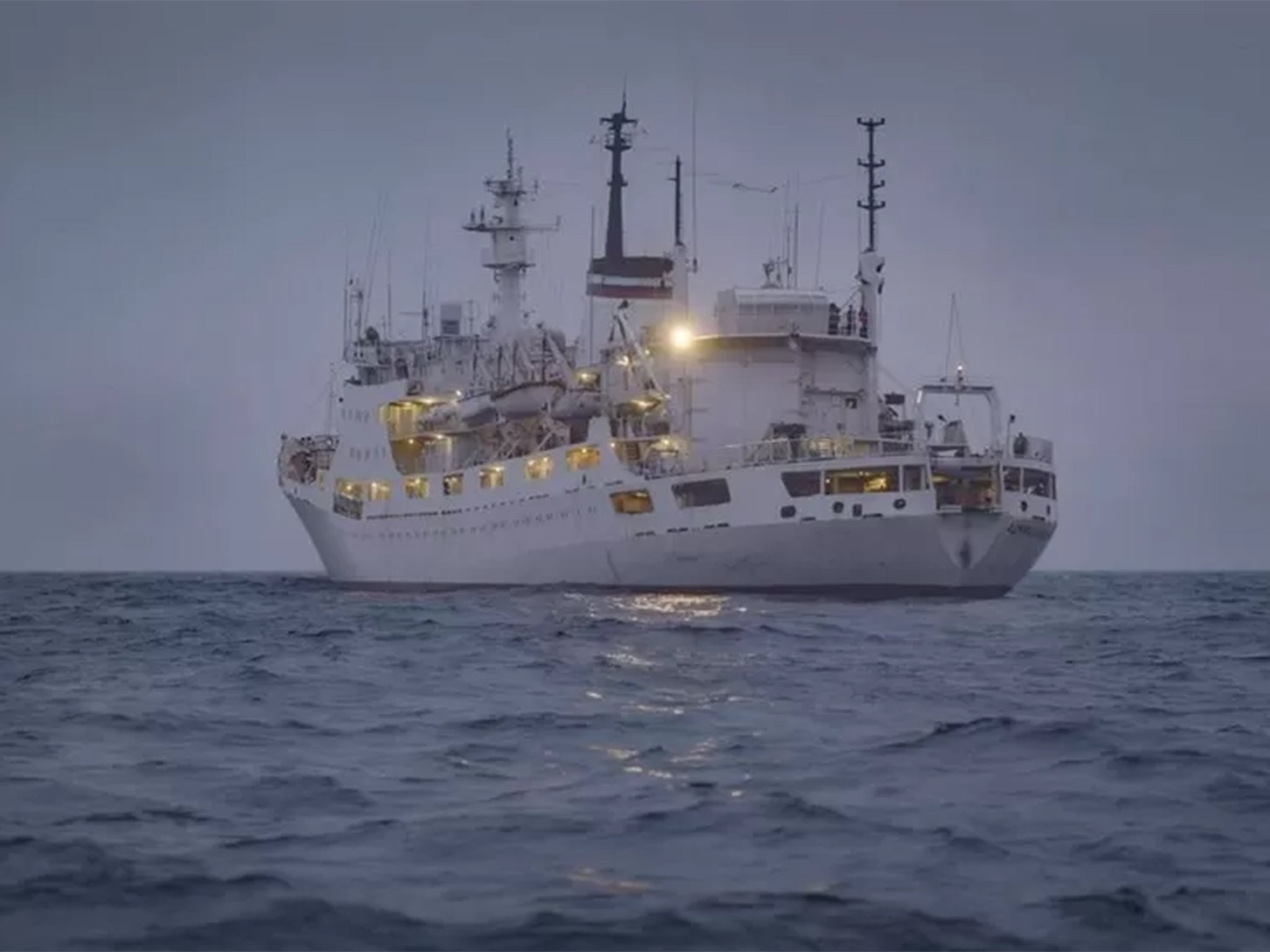Russian ships ‘plotting sabotage in the North Sea’
Investigation uncovers alleged plans aimed at knocking out communications and energy infrastructure
Your support helps us to tell the story
From reproductive rights to climate change to Big Tech, The Independent is on the ground when the story is developing. Whether it's investigating the financials of Elon Musk's pro-Trump PAC or producing our latest documentary, 'The A Word', which shines a light on the American women fighting for reproductive rights, we know how important it is to parse out the facts from the messaging.
At such a critical moment in US history, we need reporters on the ground. Your donation allows us to keep sending journalists to speak to both sides of the story.
The Independent is trusted by Americans across the entire political spectrum. And unlike many other quality news outlets, we choose not to lock Americans out of our reporting and analysis with paywalls. We believe quality journalism should be available to everyone, paid for by those who can afford it.
Your support makes all the difference.Russian “ghost ships” are mapping offshore wind turbines, underwater data cables and other pieces of infrastructure in the North Sea – in preparation for a campaign of sabotage in the event of conflict with the West, according to a new investigation.
Moscow is alleged to have has deployed ships to carry out underwater surveillance and map key sites for possible disruption to European communications and energy supplies – infrastructure that is sometimes shared with Britain – according to a report by public broadcasters in Denmark, Norway, Sweden and Finland.
Up to 50 suspected Russian “spy ships” are said to have been identified sailing through the waters around the four nations and Britain. The investigation suggests that the ships, officially fishing trawlers or research vessels, often switch off their automatic identification system (AIS) transponders, rendering them invisible to conventional tracking. Their whereabouts must be monitored through other techniques such as sonar, satellite imagery or patrol boats.
Danish counterintelligence chief Anders Henriksen told the investigation: “In the event of a conflict with the West, they will be ready and know where to intervene if they wish to paralyse Danish society”. While Nils Andreas Stensones, the head of Norwegian intelligence, told the broadcasters the apparent programme was considered “highly important” to Russia and was likely controlled directly from Moscow.
Journalists from DR in Denmark, NRK in Norway, SVT in Sweden and Yle in Finland said they analysed intercepted Russian communications which indicate so-called ghost ships have been sailing in Nordic waters with their locations masked.
The report focuses on a Russian vessel called the Admiral Vladimirsky, which is, officially, an oceanographic expedition ship, or underwater research vessel. But the report alleges it is being used as a Russian spy ship.
The first of a series of reports containing the allegations, is set to air across the four Nordic countries on Wednesday. The broadcasters used an anonymous former UK Royal Navy expert to track the movements of the vessel in the vicinity of seven wind farms off the coast of the UK and the Netherlands on one mission.
Through intercepted communications, the broadcasters were able to determine that Admiral Vladimirsky sailed around the Baltic Sea and North Sea for a month with its transmitter turned off.
The ship’s route passed both current and future offshore wind farms, where it stayed for several days.
Footage shows that when reporters from DR approached the research vessel near the eastern Danish town of Grenaa, they saw an armed man in uniform with a Russian military rifle on board.

Admiral Vladimirsky was reportedly sighted off the Scottish coast last year. It was spotted entering the Moray Firth on 10 November and seen about 30 nautical miles east of Lossiemouth, home to the RAF’s Maritime Patrol Aircraft fleet before heading slowly west, according to H I Sutton, another naval expert who was consulted for the Nordic investigation.
A Ministry of Defence spokesperson said: “The government takes the security and resilience of our national infrastructure very seriously ... We continue to review all our investments and activities against the full range of threats and risks.”
The Independent understands that the ship was unlikely to be conducting mapping of data cables around the UK, as this information is available elsewhere.
Russian ambassador to Norway, Teymuraz Ramishvili, responded to the report, saying: “The work of the research vessels is in demand and is carried out in full compliance with international law. That work is coordinated through diplomatic channels.”
In February, a report by Dutch intelligence agencies accused Russia of “covertly mapping” critical infrastructure in the North Sea. The joint report by the Dutch intelligence services AIVD and MIVD warned that “vital marine infrastructure” could be vulnerable to sabotage and that Russia is undertaking “activities that indicate espionage and acts to prepare for disruption and sabotage”.
“Russia is mapping how our wind parks in the North Sea function. They are very interested in how they could sabotage the energy infrastructure,” the head of the MIVD, General Jan Swillens, said at a news conference at the time.
However, this Scandivanian investigation is the most comprehensive look at the matter released to the public.
In September last year, the Nord Stream pipeline, which carries gas through the Baltic from Russia to Europe, were severely damaged by explosions. Russia and Western nations have traded accusations over the apparent sabotage, though investigations are ongoing.
It comes as British officials warned that Russian hackers seek to “disrupt or destroy” critical infrastructure in the UK.
The National Cyber Security Centre issued an official threat notice to operators of Britain’s electricity, water and other critical systems, telling them to boost their defences.




Join our commenting forum
Join thought-provoking conversations, follow other Independent readers and see their replies
Comments